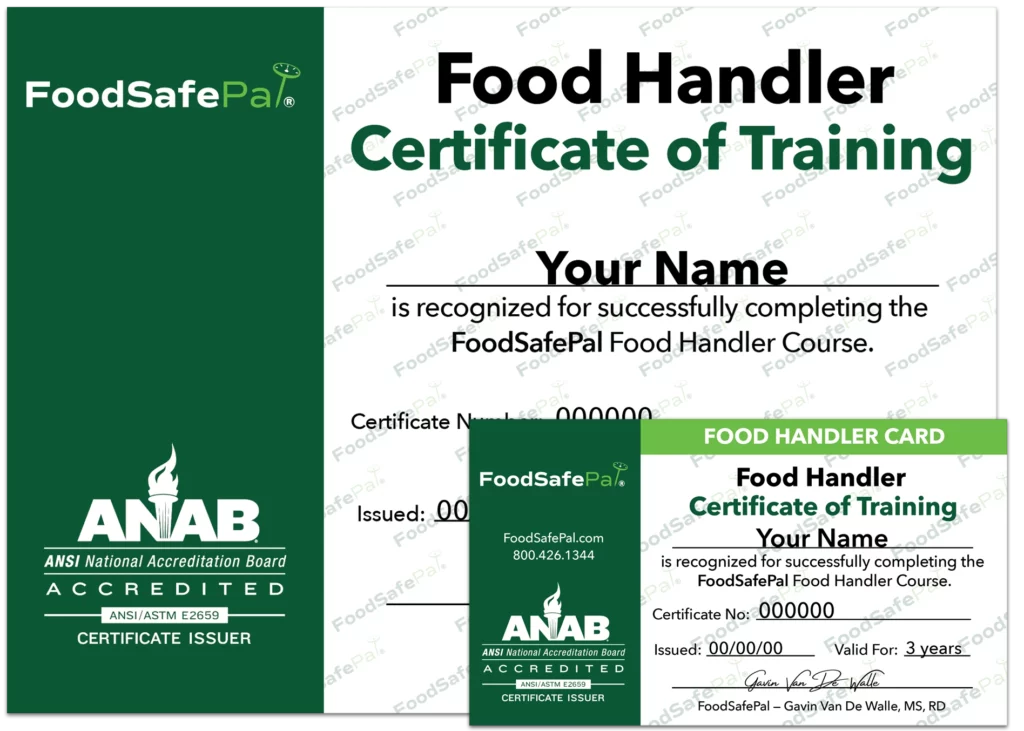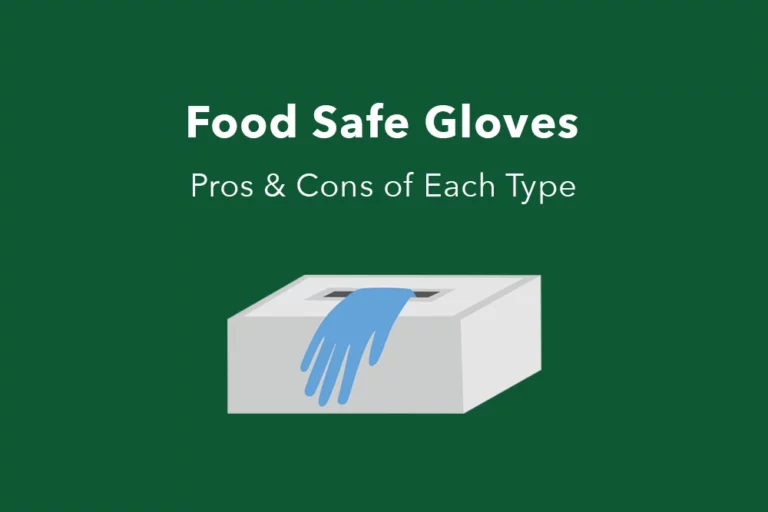ANSI-ANAB Food Handlers Card: What to Know
There are dozens of food handler training programs that issue a food handler card or certificate.
However, only a handful of these programs are accredited by the ANSI–National Accreditation Board (ANAB).
Though, you may wonder what an ANSI food handlers card is or how it differs from a non-accredited food handler card.
This article explains everything you need to know about an ANSI food handlers card, including how you can earn one.

What is a food handlers card?
A food handler card — also known as a food handler certificate, license, or permit — proves that you have taken and passed a course about food safety.
The course covers essential food safety principles, including:
- good personal hygiene and handwashing
- cross-contamination and food allergies
- time and temperature controls for food safety
- cleaning and sanitization procedures
Because unsafe food handling practices by foodservice employees is a common reason for foodborne illnesses, many states and local health departments require a food handler card to work at a food establishment.
A food establishment usually means restaurants and bars that serve food, but it also includes hotels, schools and colleges, grocery stores, convenience stores that serve hot food like pizza, or nursing homes and other healthcare facilities.
Even in places where state or local laws don’t require a food handler card, many food establishments have a strong food safety culture and still require their workers to earn one before or within a certain period of employment.
Summary
A food handler card proves that have completed a course on important food safety principles. Many states and local health departments require a food handler card to work at a food establishment, while some places still require it even if the law doesn’t.
What does ANSI-ANAB mean for food handler card?
There are no shortage of food handler or food safety training programs.
If you don’t believe me — do a quick Google search.
However, only a handful of these food handler training programs are accredited by the ANSI-National Accreditation Board (ANAB).
ANSI — or the American National Standards Institute — is the national standards body of the United States and acts as an umbrella organization for the ANAB (1).
Food handler training programs that are ANSI–ANAB accredited have undergone a rigorous third-party review to examine both the food handling program and the organization offering it against more than 100 established national standards.
The accreditation process ensures that the food handler program — and the people making up the organization offering it — are credible and competent and their results can be relied upon.
It also ensures that the training organization operates with transparency and makes decisions on objective criteria rather than the basis of bias or prejudice.
Because of the rigorous accreditation process, and the benefits to the consumer that accreditation provides, many states that require a food handler card for foodservice employees require that it be ANSI–ANAB accredited.
States that require ANSI–ANAB accreditation include:
Many local health departments of other states also only deem food handler cards from ANSI–ANAB-accredited organizations valid.
Newly accredited organizations will have the ANAB accredited symbol, while organizations that have been accredited for several years will likely still use the ANSI accredited symbol.

For the purposes of accreditation proof, ANSI and ANAB mean the same thing, but all accredited companies must switch to using the ANAB logo by 2025.
Summary
ANSI-ANAB accreditation means that food handler training program — and the organization offering it — are credible, competent, and operate with transparency.
How to earn an ANSI–ANAB-accredited food handler card?
If you need to earn your food handlers card because your health department or employer requires it, doing so is simple.
But, remember, it’s best to ensure that the food handler training program holds ANSI–ANAB accreditation.
A food handler training program that holds this accreditation will let you know on their website.
If you don’t see any verbiage about ANSI–ANAB accreditation or the ANAB accreditation symbol, chances are that it is not accredited.
FoodSafePal is legit and one of the handful of ANSI–ANAB-accredited food handler training providers.
Earn or Renew Your Food Handler Card in 90 Minutes
Trusted by thousands. The fastest, most reliable way to meet your health department’s requirements.

Most states and health departments accept FoodSafePal’s food handler training.
The course consists of interactive video lessons and is self-paced, meaning you can start and stop as needed.
After you complete the video lessons, it’s time to test.
The test consists of 40 multiple-choice questions, and you need to answer at least 28 (70%) correctly to earn your food handler card.
If you don’t pass the first time, you can retest.
Here is everything you need to know to pass the food handlers test the first time.
You can complete the course and test in as little as 90 minutes.
After earning your food handler card, you can immediately print it, download it, or send it to yourself or your manager through a secure link.
Your food handler card will be good for three years, but some states and health departments may require that you renew sooner.
Summary
To earn your ANSI–ANAB-accredited food handler card with FoodSafePal, simply enroll in the course, complete the course content, and pass the test.
The bottom line
Not all food handler training programs are created equal.
Some have chosen to undergo a rigorous third-party review to earn ANSI–ANAB accreditation.
Because of the credibility it provides and the competency it assures, many states, health departments, and food establishments require food workers to earn a food handler card from an ANSI–ANAB-accredited food handler program.
To earn your ANSI-ANAB-accredited food handler card from FoodSafePal, simply enroll in the program, complete the course content, and pass the test.
Earn or Renew Your Food Handler Card in 90 Minutes
Trusted by thousands. The fastest, most reliable way to meet your health department’s requirements.

Your food handler card will be good for three years, but your state or health department may require you to renew it sooner.






